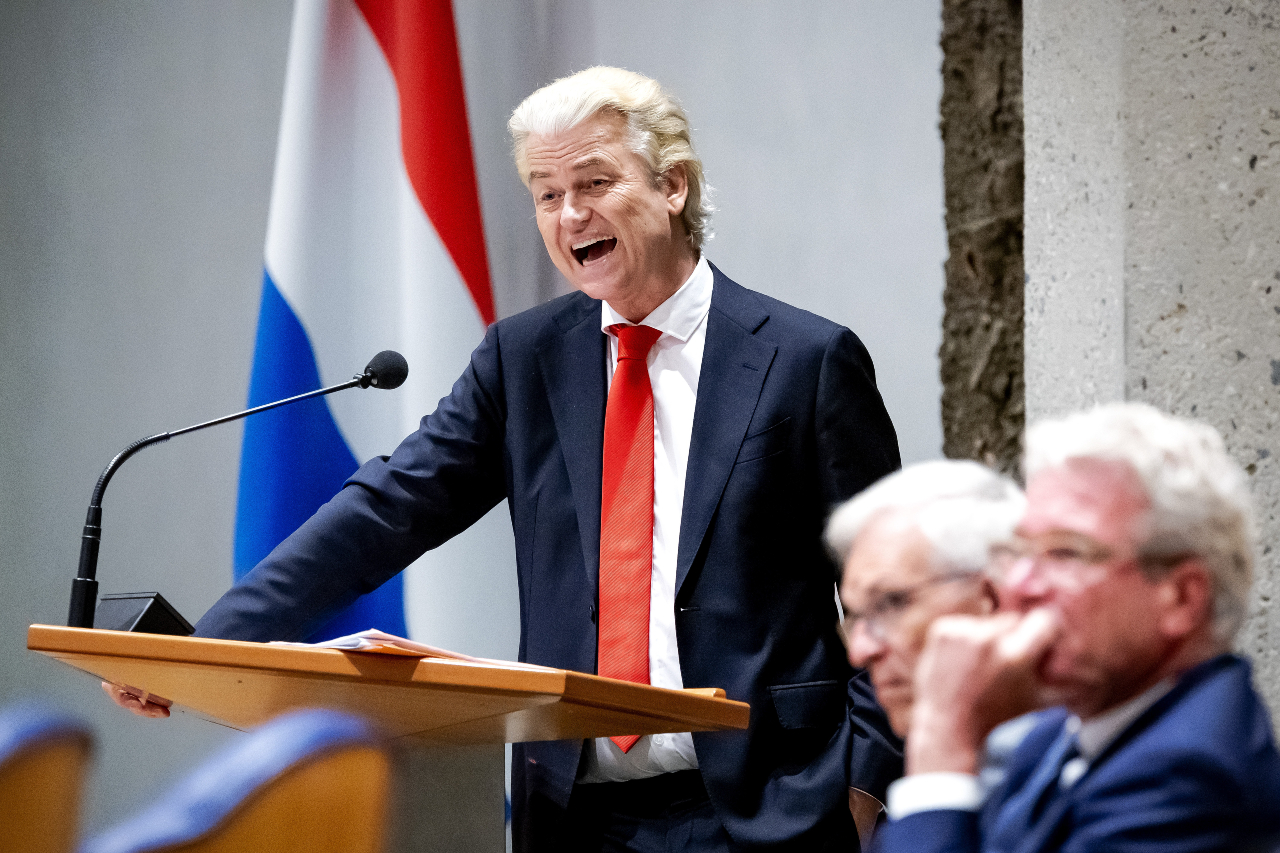Wilders promises to make finding prime minister “acute” priority

The search for the next Dutch prime minister will be an “acute” priority for the next stage of negotiations between the four coalition parties, PVV leader Geert Wilders has told MPs.
Wilders had hoped to name former Labour party (PvdA) minister Ronald Plasterk as his candidate last week, but Plasterk ruled himself out on Monday over reports that he claimed sole patent rights for a cancer medicine that he developed in partnership with the UMC hospital in Amsterdam.
Wilders told a debate on the parties’ draft plan for government that he regretted Plasterk’s decision to step down. “I think he would have been a terrific prime minister,” he said.
He added that the issue had been complicated by the agreement by the four leaders not to take posts in cabinet. “A lot of this could have been avoided if the leader of the largest party could have been prime minister,” Wilders said.
Richard van Zwol, one of the two lead negotiators in the last phase of coalition talks, is expected to be appointed as formateur at the end of Wednesday’s debate. He will oversee the final stage of talks, when ministers are appointed, which is expected to last four to five weeks.
Wilders promised that the question of who should lead the cabinet would be dealt with “tomorrow morning, acutely, immediately”.
Half the ministers in the new cabinet are expected to be non-party affiliated under the “extra-parliamentary” structure devised by Kim Putters, head of the socio-economic council (SER), in a previous stage of the talks.
Wilders added that the coalition parties would only be bound by collective responsibility on the policies included in the agreement, which is shorter and less detailed than previous government programmes.
Any change to the cabinet’s policies or financial plans will have to be agreed by the entire coalition, but other laws will be decided on a free vote, meaning the parties can vote against each others’ plans.
The composition of the cabinet still has to be decided, but Pieter Omtzigt, head of the NSC party, said it would include a minister for migration. Asylum and migration are currently the responsibility of Eric van der Burg, a junior minister in the justice department.
Dilan Yesilgöz, leader of the liberal VVD party, has suggested the migration portfolio should be taken by the PVV.
Frans Timmermans, leader of the opposition GroenLinks-PvdA alliance, said the new cabinet risked damaging the Netherlands’ international standing with its proposals to cut its EU contributions and demand a Danish-style “opt-out” on immigration policies.
“The Netherlands is making demands of the European Union while offering nothing,” Timmermans said.
ChristenUnie leader Mirjam Bikker attacked the coalition’s plans on asylum, such as abolishing the “spreading law” to distribute refugees around the country and freezing the processing of asylum claims.
Bikker said it would lead to a repeat of the chronic overcrowding at the Ter Apel reception centre two years ago, when people slept on the grass verge outside the facility and the Red Cross condemned conditions as “inhumane”.
Thank you for donating to DutchNews.nl.
We could not provide the Dutch News service, and keep it free of charge, without the generous support of our readers. Your donations allow us to report on issues you tell us matter, and provide you with a summary of the most important Dutch news each day.
Make a donation